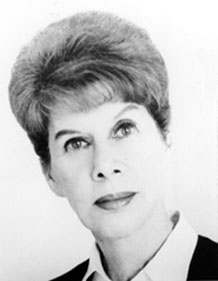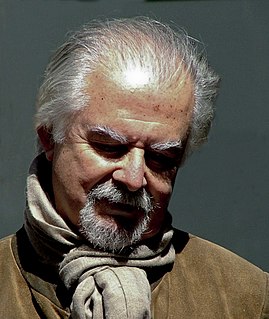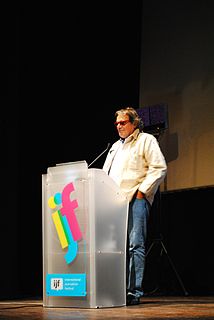Top 1200 Realistic Fiction Quotes & Sayings - Page 2
Explore popular Realistic Fiction quotes.
Last updated on December 23, 2024.
The Captains of Industry have always counseled the rest of us "to be realistic." Let us, therefore, be realistic. Is it realistic to assume that the present economy would be just fine if only it would stop poisoning the air and water, or if only it would stop soil erosion, or if only it would stop degrading watersheds and forest ecosystems, or if only it would stop seducing children, or if only it would stop buying politicians, or if only it would give women and favored minorities an equitable share of the loot?
People who complain often say things like, 'I'm not being negative, I'm just being realistic.' Really? How is it anymore 'realistic' to focus on and talk about things that discourage us and make us feel bad, than to focus on and talk about the POSITIVE aspects of life that make us feel GOOD? Both area equally REALISTIC, but which you choose to dwell on has a very different impact on the quality of YOUR life.
Realism should only be the means of expression of religious genius... or, at the other extreme, the artistic expressions of monkeys which are quite satisfied with mere imitation. In fact, art is never realistic though sometimes it is tempted to be. To be really realistic a description would have to be endless.
Science fiction, as I mentioned before, writes about what is neither impossible nor possible; the fact is that, when the question of possibility comes up in science fiction, the author can only reply that nobody knows. We haven't been there yet. We haven't discovered that yet. Science fiction hasn't happened.
In general, fiction is divided into 'literary fiction' and 'commercial fiction.' Nobody can definitively say what separates one from the other, but that doesn't stop everybody (including me) from trying. Your book probably will be perceived as one or the other, and that will affect how it is read, packaged and marketed.
A fine memoir is to a fine novel as a well-wrought blanket is to a fancifully embroidered patchwork quilt. The memoir, a logical creation, dissects and dignifies reality. Fiction, wholly extravagant, magnifies it and gives it moral shape. Fiction has no practical purpose. Fiction, after all, is art.
Science fiction is a weird category, because it's the only area of fiction I can think of where the story is not of primary importance. Science fiction tends to be more about the science, or the invention of the fantasy world, or the political allegory. When I left science fiction, I said "They're more interested in planets, and I'm interested in people."
As you see, I bear some resentment and some scars from the years of anti-genre bigotry. My own fiction, which moves freely around among realism, magical realism, science fiction, fantasy of various kinds, historical fiction, young adult fiction, parable, and other subgenres, to the point where much of it is ungenrifiable, all got shoved into the Sci Fi wastebasket or labeled as kiddilit - subliterature.
It's once I discover the people inside that the story really gets going, and then the formal invention becomes less important. It's just the way in; it's the door; and then what's behind it is always some kind of people, which I think probably makes me more in the tradition of realistic fiction because that's usually what I'm interested in, the people.
As a child, I was always a sucker for anything in miniature, and it didn't have to be a dress: a desk, a Matchbox truck. Perhaps a childhood attraction to shrunken but compellingly realistic facsimiles is commonplace, if only because children themselves are compellingly realistic facsimiles of the giants who rule their world.
Fantasy is not antirational, but pararational; not realistic but surrealistic, a heightening of reality. In Freud's terminology, it employs primary not secondary process thinking. It employs archetypes which, as Jung warned us, are dangerous things. Fantasy is nearer to poetry, to mysticism, and to insanity than naturalistic fiction is. It is a wilderness, and those who go there should not feel too safe.
I find it interesting that people often seem to believe that authors of realistic fiction are directly translating their personal experiences into their work. The fact is that telling a story is a transformative experience. There is rarely a one-to-one translation onto the page unless you're writing memoir, and even then, memory is unreliable. I think that the best books feel emotionally true, and that truth has to be rooted in real-world experience.
I remember reading an interview with a writer who said that in nonfiction if you have one lie it sort of messes it up. But in fiction the real details give you so much more credibility, because people do so much research just to write fiction. In fiction you're trying to recreate something lifelike.
All my life, my girlfriends are always skinny. Beauty in art has nothing to do with beauty in reality. Why do you like primitive art? Because there is beauty in the deformity. Sometimes paintings that people consider realistic are not at all. Raphael figures look realistic, but in real life, they were deformed.
I tend to avoid melodrama. I try to create very realistic settings and very realistic experiences and realistic responses to these experiences. Melodrama is the use of really big events that may or may not happen in real life - certainly they do, but they're not events that are common to most people. Most of the things that happen in my novels are things that could happen to people in real life.
Literary science fiction is a very, very narrow band of the publishing business. I love science fiction in more of a pop-culture sense. And by the way, the line between science fiction and reality has blurred a lot in my life doing deep ocean expeditions and working on actual space projects and so on. So I tend to be more fascinated by the reality of the science-fiction world in which we live.
Memory is like fiction; or else it's fiction that's like memory. This really came home to me once I started writing fiction, that memory seemd a kind of fiction, or vice versa. Either way, no matter how hard you try to put everything neatly into shape, the context wanders this way and that, until finally the context isn't even there anymore... Warm with life, hopeless unstable.


























































